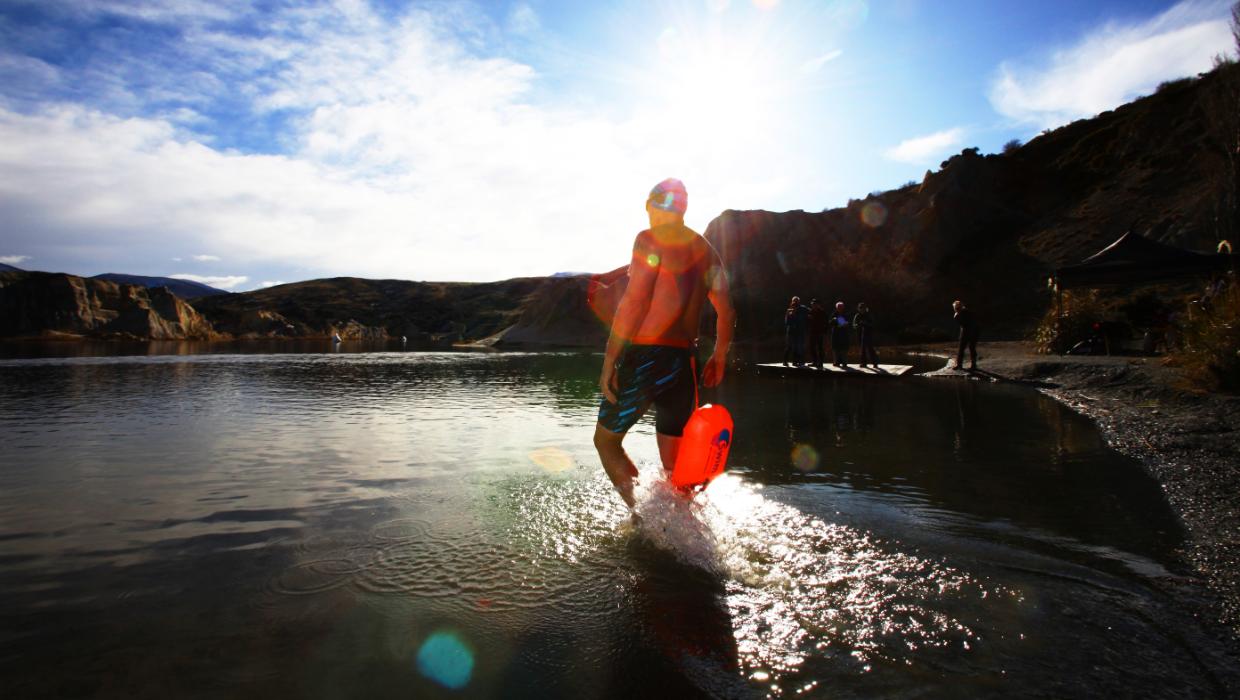Health
Ice Swimming Enthusiasts Embrace Extreme Conditions for Health Benefits

Ice swimming, a growing trend among health enthusiasts, involves entering freezing waters, often under extreme conditions. Participants argue that despite the initial shock and discomfort, the health benefits are significant. Individuals from various countries, including Finland, Sweden, and the UK, are embracing this icy challenge as a means to enhance their physical and mental wellness.
Health experts highlight that ice swimming can improve circulation, boost the immune system, and potentially reduce stress. The practice is rooted in ancient traditions, where cold exposure was believed to foster resilience and vitality. In January 2023, a group of dedicated ice swimmers gathered in southern Finland, showcasing their commitment to this invigorating activity.
Embracing the Cold for Wellness
The psychological effects of ice swimming are equally noteworthy. Many participants report a sense of euphoria following their plunge, often described as a “natural high.” This phenomenon is attributed to the release of endorphins, the body’s natural painkillers. After braving the chill, swimmers often feel a profound sense of accomplishment and mental clarity.
Anna Lehtonen, a 32-year-old ice swimmer from Helsinki, expressed her enthusiasm. “The cold is daunting at first, but once you’re in, it’s exhilarating. I feel more alive than ever,” she stated. Such sentiments echo throughout the community, where personal stories of transformation and resilience abound.
Research has also begun to back these claims. A study conducted by the University of Exeter in the UK found that regular exposure to cold water may boost mental health and improve overall well-being. Participants reported reduced symptoms of anxiety and depression, indicating that ice swimming may serve as a therapeutic outlet for many.
Global Community and Safety Measures
As the popularity of ice swimming grows, so does the formation of supportive communities. Groups often gather for regular swims, sharing tips and techniques on how to safely navigate the frigid waters. Many organizations, including the International Ice Swimming Association, emphasize the importance of safety measures, such as gradually acclimatizing to the cold and never swimming alone.
Events and competitions have also emerged, attracting participants from various backgrounds. In early 2023, the annual World Ice Swimming Championships took place, showcasing the athleticism and determination of swimmers willing to brave the elements. Athletes competed in distances ranging from 100 meters to 1,000 meters, with some swimmers completing the challenges in waters as cold as -3 degrees Celsius.
Despite the thrill, experts advise caution. Sudden exposure to extreme cold can pose risks, including hypothermia and cardiac stress. Therefore, newcomers are encouraged to consult with medical professionals before embarking on their ice swimming journey.
For many, the joy of ice swimming transcends mere physical activity. It represents a commitment to pushing personal limits and embracing nature’s elements. As more individuals join this icy movement, the community continues to grow, bonded by shared experiences and the pursuit of wellness through resilience.
As the chill seekers plunge into icy waters, they are not just seeking an adrenaline rush but are also forging a path toward enhanced health and well-being. The combination of physical and mental challenges creates a unique experience that continues to attract participants worldwide.
-

 World4 months ago
World4 months agoTest Your Knowledge: Take the Herald’s Afternoon Quiz Today
-

 Sports4 months ago
Sports4 months agoPM Faces Backlash from Fans During Netball Trophy Ceremony
-

 Lifestyle4 months ago
Lifestyle4 months agoDunedin Designers Win Top Award at Hokonui Fashion Event
-

 Entertainment4 months ago
Entertainment4 months agoExperience the Excitement of ‘Chief of War’ in Oʻahu
-

 Sports4 months ago
Sports4 months agoLiam Lawson Launches New Era for Racing Bulls with Strong Start
-

 World5 months ago
World5 months agoCoalition Forms to Preserve Māori Wards in Hawke’s Bay
-

 Health4 months ago
Health4 months agoWalking Faster Offers Major Health Benefits for Older Adults
-

 Lifestyle4 months ago
Lifestyle4 months agoDisney Fan Reveals Dress Code Tips for Park Visitors
-

 Politics4 months ago
Politics4 months agoScots Rally with Humor and Music to Protest Trump’s Visit
-

 Top Stories5 months ago
Top Stories5 months agoUK and India Finalize Trade Deal to Boost Economic Ties
-

 Health2 months ago
Health2 months agoRadio Host Jay-Jay Feeney’s Partner Secures Visa to Stay in NZ
-

 World5 months ago
World5 months agoHuntly Begins Water Pipe Flushing to Resolve Brown Water Issue









